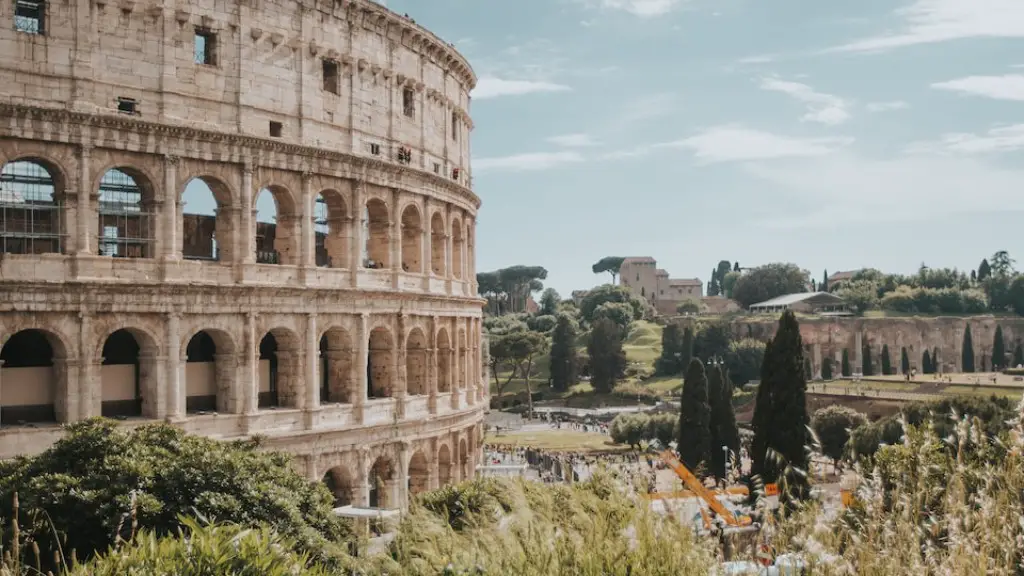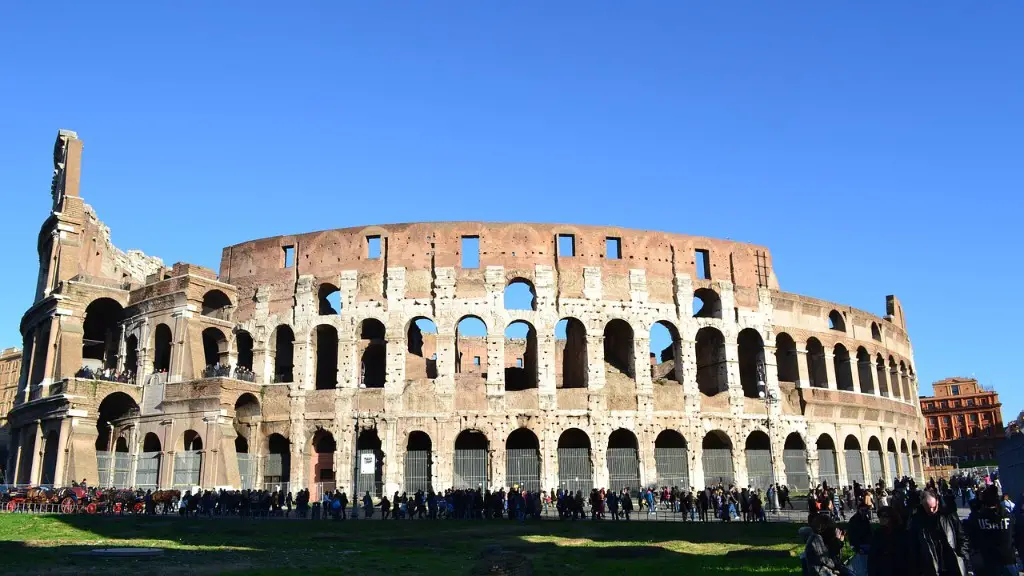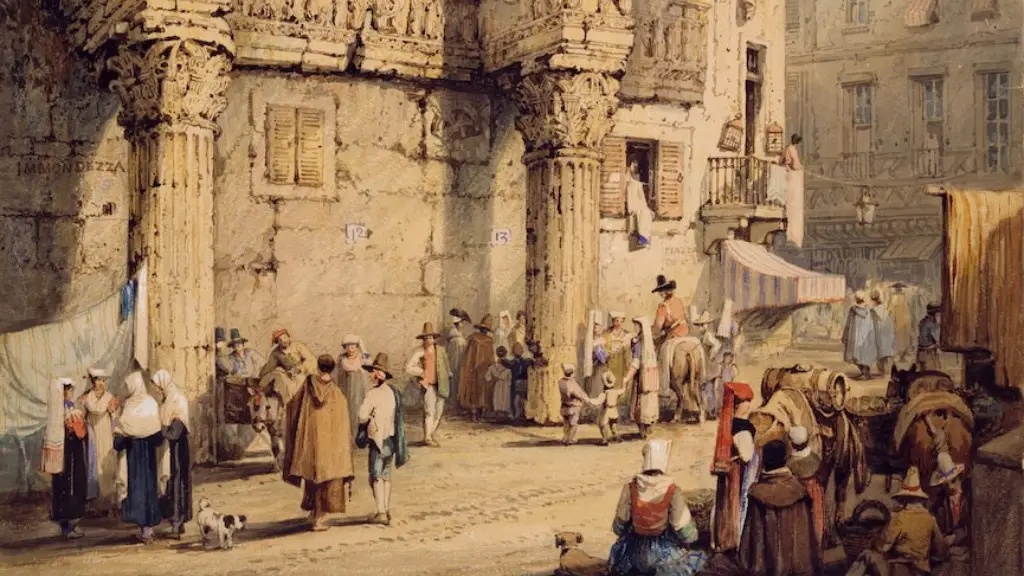Slave revolts were common in ancient Rome, and their frequency and size only increased over time. Slaves in ancient Rome were used primarily for domestic and agricultural labor and were often viewed as inferior to the Roman people. Slaves had no legal rights and were subject to the whims of their owners, so it was difficult for them to gain freedom or even basic rights without taking drastic measures. This article will explore why slaves revolted in ancient Rome, and the impacts of these revolts on the Roman Empire.
It is difficult to know exactly why slaves revolted since the declarations of the actual rebels have not survived the passage of time. However, there is evidence that suggests the most common reasons why slaves revolted in ancient Rome were a desire for better conditions, harsher punishments, and a longing for freedom. Many authors, such as Plutarch and Appian, wrote about slave revolts in detail and it is clear that the slaves were well-motivated and determined to resist the tyranny of their masters.
One of the earliest recorded slave revolts occurred in 132 BC when a group of slaves led by Eunus began an uprising against their masters. Although the revolt eventually failed, it showed that slaves were increasingly becoming more bold in their attempts to free themselves. The events leading up to the revolt likely played a role in increasing the slaves’ desire for freedom and better conditions.
Slave revolts in ancient Rome were likely also motivated by the harsh punishments inflicted on the slaves by their masters. According to Roman law, slaves were to be whipped and tortured if they disobeyed their owners. This inhuman practice was a source of great discontent for many slaves, and it seems likely that this was one of the primary motivations for the revolts.
In addition to the desire for freedom, many slaves also revolted as a way of regaining some power over their lives. Many of the revolts involved acts of organized violence, such as burning down buildings and attacking those who opposed them. These acts of violence were a way for the slaves to demonstrate that they were no longer content to be submissive and that they demanded to be treated with respect.
Although some of the earlier revolts were successful, the slaves rarely achieved lasting freedom or even better conditions. In most cases, the revolts were crushed by the Roman military and the slaves were returned to their masters. However, the revolts did bring attention to the injustices of slavery and increased awareness of the plight of Roman slaves.
The legacy of the slave revolts in ancient Rome is one that still resonates today. The courage and determination of the slaves who rose up against their oppressors is an example of the power of resistance. Their efforts have helped to shape a world in which individuals are free to pursue their rights and to speak out against injustices.
Consequences of Slave Revolts
The revolts of slaves in ancient Rome had far-reaching consequences for Roman society. Contrary to what might be expected, the Roman Senate actually welcomed the revolts, viewing them as proof of the strength of Roman law. The Senate used the revolts as an opportunity to pass more stringent laws pertaining to slavery and punishment, primarily in order to prevent future revolts and preserve the status quo.
Furthermore, the revolts of the slaves also lead to increased awareness of the harsh conditions of slavery in Roman society. A growing body of literature was devoted to the plight of the slaves and the injustices they suffered. As these works gained popularity, they also had the effect of swaying public opinion in favor of gradual abolition of slavery.
Finally, the slave revolts in Rome had a major impact on the economy. Since slaves were the primary source of labor in many Roman agricultural industries, the unrest and disruption caused by the revolts resulted in decreased production and increased costs. This, in turn, had a negative impact on the Roman economy, which was already struggling to cope with a variety of factors.
Effects of Revolts on Roman Politics
The slave revolts in ancient Rome had a major effect on Roman politics as well. For example, the Senate was forced to take a more active role in regulating the treatment of slaves and in improving their living conditions. This in turn led to increased measures to protect the rights of slaves and to ensure their safety.
Furthermore, the revolts also had an effect on the relationship between the Romans and other nations. The Roman Senate began to take a more active role in negotiating with foreign nations when it came to the trading of slaves and in making sure that people captured as slaves were treated humanely. As a result, the Roman Empire was seen as a more responsible world power, which helped to increase its influence in the Mediterranean world.
Finally, the slave revolts had the effect of increasing the power of the Roman people. The increased power of the people was demonstrated in the increasing number of laws passed in order to protect the rights of slaves and other oppressed people. Laws that guaranteed freedom and fair wages became more common, and this in turn lead to the improvement of the lives of all Roman citizens.
Rome’s Legacy After Slave Revolts
Even though the slave revolts in ancient Rome may not have been successful in gaining freedom for the slaves, the impact of the revolts was far-reaching. The increased awareness of the plight of the slaves and the increased regulation of the slave trade led to improved living and working conditions for all Roman citizens. Moreover, the legacy of the slave revolts helped to establish the Roman Empire as a more responsible world power.
Today, the legacy of the slave revolts in Rome is still evident in the struggle for human rights and equality. Many countries and organizations have adopted policies and laws modeled on those introduced by the Romans in order to protect and improve the rights of the oppressed. These laws and policies, although not perfect, serve as a reminder to all of us that the struggle for freedom and equality is ongoing.
Impact of Slavery on Roman Culture
The slave revolts in ancient Rome had a profound impact on Roman culture as well. For one, the institution of slavery had an effect on Roman art and literature, as many works began to focus on the plight of the slaves. Additionally, the increasing awareness of the horrors of slavery had an effect on Roman morality and beliefs.
In addition to their effect on Roman art and literature, the revolts also had an effect on the Roman economy. As mentioned before, the revolts resulted in decreased production and increased costs. This, in turn, had an effect on the availability of goods and services, which lead to higher prices
Finally, the slave revolts also had an effect on the Roman political system. As mentioned earlier, the Senate was forced to take a more active role in regulating slavery and in protecting the rights of slaves. This increased regulation had an effect on the power of the Senate and the ruling class, as more power was shifted to the people.
Conclusion
The slave revolts in ancient Rome were an important part of the history of the Roman Empire. The revolts showed the strength and resilience of the slaves and helped to shine a light on the injustices of slavery. Through their actions, the slaves helped to shape a world in which individuals were more aware of their rights and able to pursue them. Although the revolts were ultimately unsuccessful, they have left a lasting legacy that still resonates in the modern world.




